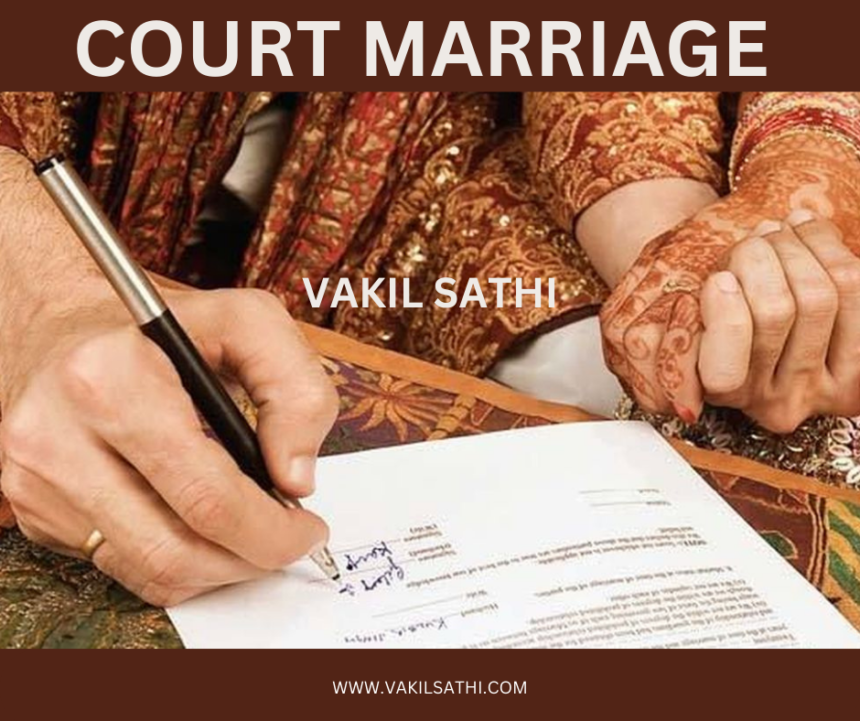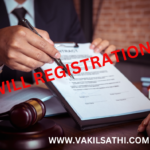Court marriage is separate from traditional marriage. During traditional marriages, all rituals & ceremonies are present. But all court marriages are present in court in the presence of a marriage registrar & witnesses.
Eligibility Criteria for Court Marriage
Anyone who wants to perform their court marriage must have to fulfill the eligibility criteria for their court marriage. There are many conditions everyone needs to fulfill before their marriage.
Age Criteria: As per the Indian Laws, anyone who wants to complete their court marriage must have to fulfill the minimum age requirement for male and female partners. The minimum age of both the partners: Male – 21 years & Female – 18 years.
Mutual Consent Of Partners: Both partners is very important to the Approval. Both the partners want to marry each other. They have taken this decision to complete the marriage without any pressure or force.
Non-Prohibited Relationships: Certain marriages are not allowed in different religions and customs. Some relationships are prohibited in different Indian Laws and Different Religions. Both the partners must not belong to these relationships before completing the marriages.
No Active Relationships: In India, the bigamy is not allowed. Both the partners must not have a previous active relationship. In the case of previous relationships, either they have got the divorce decree from the court or one of the spouses is not living. A Death Certificate and Divorce Decree will be needed.
Documents Required for the Court Marriage?
There are certain documents needed for the court marriage of both partners and witnesses. The List of documents both the partners and witnesses required for court marriage:
Documents For Male and Female Partners –
Identity Proof / ID Proof:
Aadhar Card / Voter ID Card /PAN Card / Driving License / Passport (Any one of them)
Address Proof:
Aadhar Card / Rent Agreement / Voter ID Card / Gas Bill / Electricity Bill (Any one of them)
Birth Proof:
Marksheet Class 10 or, Birth-Certificate
Divorce Decree:
In the case of a previous relationship, if the previous partners have taken divorce, they must also submit the divorce decree of the marriage.
Death Certificate:
This is applicable only for the partners in a previous relationship such that one of the partners is died. The living partner must have to submit there death certificate of the non-living spouse.
Photos:
5-5 passport size photos of male & female partners
Documents for Witness?
Identity Proof / ID Proof:
Aadhar Card / Voter ID Card /PAN Card / Driving License / Passport (Any one of them)
Address Proof:
Aadhar Card / Rent Agreement / Voter ID Card / Gas Bill / Electricity Bill (Any one of them)
Photo:
2-2 passport size photos of all the witness.
Laws for Court Marriage and Marriage Registration?
Special Marriage Act, 1954
This is an important act for the court marriage and marriage registration of both the partners irrespective of their caste and religion. No traditional marriage and rituals are performed during the marriage under this Special Marriage act.
It takes around 30 days for the finishing of the marriage. All inter-religion marriages are performed under this act. The approval of parents is necessary for the marriages under the Special Marriage Act, 1954.
Hindu Marriage Act, 1955
This act is applicable for all Hindus including Sikhs, Jain, and Buddhists. It takes only some time for the registration of marriages under this Act. but Both the partners must belong to the same Hindu Religion. But the caste of both the partners is doesn’t matter.
- At first, Both the male & female partners must complete their marriage in the Arya Samaj Temple.
- In the Arya Samaj Temple, the marriage of both the partners is finished as per the Hindu Vedic Rituals.
- The same important rituals Hindu Marriage are performed like – Saptapadi Seven Pheras Around Fire , Mangal Sutra & Sindoor-Daan.
- It Also, required two witnesses for the Arya Samaj Marriage. It takes around minimum time for the completion of Arya Samaj Marriage.
- After the Arya Samaj Marriage, the marriage will be registered in a court under the Hindu Marriage Act, 1955.
- The marriage certificate will be issued after completing the marriage registration.
Marriage Of Muslim Partners
If both the partners belong to the Muslim religion, The marriages will be registered under the Muslim Personal Laws.
At, both male and female partners perform their Nikah. Both must sign a Nikah-Nama by the presence of Kazi.
Their marriages will be registered in court & they will receive the marriage certificate after some days.
The Indian Christian Marriage Act, 1872
This is applicable to all the Christians in India. If both the partners belong to the same Religion, their marriages will be registered under the Indian Christian Marriage Act, 1872.
At first, their marriage will be completed at the Church in the presence of priest and the two witnesses.
After the church marriage, their marriage will be registered in the court as per the Indian Christian Marriage Act, 1872.
Parsi Marriage & Divorce Act, 1936
The all Parsi Religions In India. If both the partners belong to the Parsi Religion, their marriages will be registered under the Parsi Marriage and Divorce Act, 1872.





